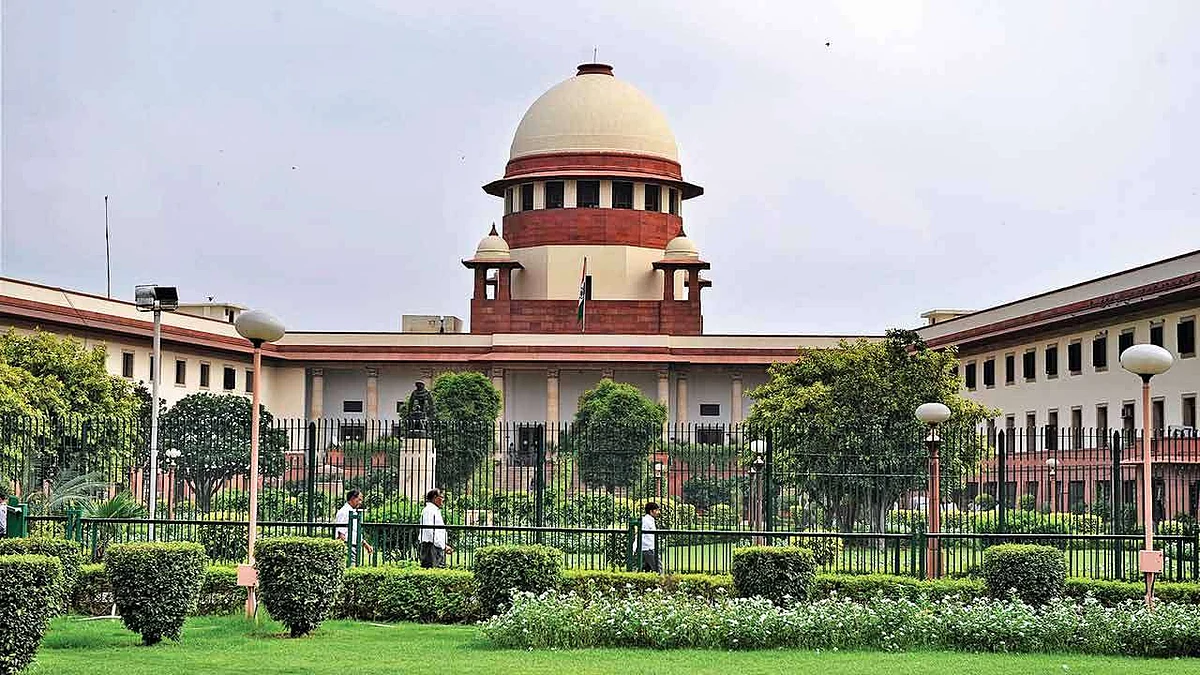SC to hear PIL challenging electoral bond scheme
The Supreme Court on Tuesday agreed to list for hearing a PIL challenging laws permitting funding of political parties through the electoral bond scheme

The Supreme Court on Tuesday agreed to list for hearing a PIL challenging laws permitting funding of political parties through the electoral bond scheme.
A bench comprising Chief Justice N V Ramana and Justices Krishna Murari and Hima Kohli took note of the submissions of lawyer Prashant Bhushan, appearing for PIL petitioner NGO, 'Association for Democratic Reforms', that the issue was critical and needed an urgent hearing.
It has been reported today morning that a Calcutta-based company paid Rs 40 crores through electoral bonds to ensure that there was no excise raid on it. This distorts democracy, Bhushan said, adding the plea has been mentioned earlier also for urgent listing.
Assuring an early listing, the CJI said, If it was not for Covid ...then I would have heard all of this."
Earlier, Bhushan had sought an urgent listing of the PIL from the apex court on October 4 last year seeking a direction to the Centre not to open any further window for sale of electoral bonds during the pendency of a case pertaining to funding of political parties and alleged lack of transparency in their accounts.
The NGO, which had filed the PIL in 2017 on the alleged issue of corruption and subversion of democracy through illicit and foreign funding of political parties and lack of transparency in the accounts of all political parties, had filed an interim application in March this year before the assembly polls in West Bengal and Assam seeking that window for sale of electoral bonds be not reopened.
The NGO, in its application filed in the pending petition, had claimed that there is a serious apprehension that any further sale of electoral bonds before the upcoming Assembly elections, including in West Bengal and Assam, would further increase illegal and illicit funding of political parties through shell companies .
It had alleged that as per data on electoral bonds declared by political parties in their audit reports for 2017-18 and 2018-19, the ruling party had received more than 60 per cent of total electoral bonds issued till date.
The application had claimed that so far more than Rs 6,500 crore worth of electoral bonds have been sold with the majority of donations going to the ruling party.
On January 20 last year, the apex court had refused to grant interim stay on the 2018 Electoral Bonds Scheme and sought responses of the Centre and the Election Commission on an interim application by the NGO seeking stay on the scheme.
The government notified the Electoral Bond Scheme on January 2, 2018.
As per provisions of the scheme, electoral bonds may be purchased by a person, who is a citizen of India or incorporated or established in India.
An individual can buy electoral bonds, either singly or jointly with other individuals.
Only political parties registered under Section 29A of the Representation of the People Act, 1951 and which secured not less than 1 percent of votes polled in the last general election to the House of the People or the Legislative Assembly of the State, are eligible to receive electoral bonds.
As per the notification, electoral bonds shall be encashed by an eligible political party only through a bank account with an authorised bank.
It said the electoral bonds scheme has opened floodgates to unlimited corporate donations to political parties and anonymous financing by Indian as well as foreign companies which can have serious repercussions on Indian democracy.
It said the Election Commission and the Reserve Bank of India had in 2017 objected to electoral bonds and had advised against issuance of electoral bonds as a mode for donation to political parties.
It alleged that almost 99 per cent of electoral bonds purchased are of value one crore and 10 lakh denominations which shows that it is not individual citizens but large corporations which are purchasing these bonds with a view to receive kickbacks from the government.
It had earlier claimed that certain amendments made in Finance Act, 2017 and earlier Finance Act, 2016, both passed as money bills, have opened doors to unlimited political donations, even from foreign companies and thereby legitimising electoral corruption at a huge scale, while at the same time ensuring complete non-transparency in political funding.
The Election Commission had told the apex court that it has received status of filing of electoral bonds from various political parties, including the BJP and the Congress, in a sealed cover.
The EC had filed an affidavit in the top court in pursuance to the April 12, 2019 direction asking the political parties to furnish all details of funds received through electoral bonds to the poll panel in a sealed cover.
The apex court had in April 2019 declined to stay the Centre's Electoral Bond Scheme 2018 and made it clear that it would accord an in-depth hearing on the pleas as the Centre and the EC have raised "weighty issues" having "tremendous bearing on the sanctity of the electoral process in the country".
The Centre and the EC had earlier taken contrary stands in the court over political funding, with the government wanting to maintain anonymity of donors of bonds and the poll panel batting for revealing names of donors for transparency.
Follow us on: Facebook, Twitter, Google News, Instagram
Join our official telegram channel (@nationalherald) and stay updated with the latest headlines
